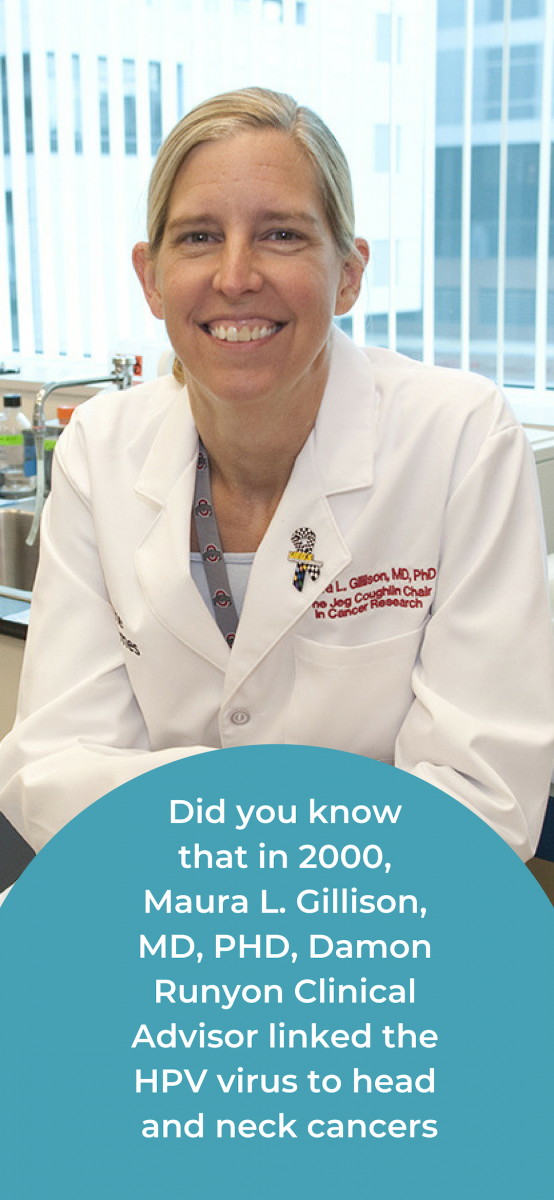HPV Cancers Outpace Rate of Vaccination
 The Centers for Disease Control and Prevention (CDC) announced in August 2018 that, for the first time, the incidence of head and neck cancers caused by the human papillomavirus (HPV) surpassed that of cervical cancer in the United States.
The Centers for Disease Control and Prevention (CDC) announced in August 2018 that, for the first time, the incidence of head and neck cancers caused by the human papillomavirus (HPV) surpassed that of cervical cancer in the United States.
While some may have been surprised, former Damon Runyon Clinical Investigator Maura Gillison, MD, PhD, at the MD Anderson Cancer Center, predicted this based on her research a decade ago. She was the first to demonstrate that HPV causes a form of head and neck cancer at a time when most researchers thought HPV caused only cervical and small numbers of genital cancers.
Since the HPV vaccine’s introduction in 2006 and due to screening efforts for the last 60 years, the number of infections and cervical precancers have fallen significantly in women. However, as sexual behavior changed in the 1960s and 1970s, and people had more sexual partners, the virus spread rapidly throughout the global population.
“Rates of HPV-caused oral cancers continue to rise every year in the U.S., particularly among men,” Maura says. Men are three to five times more vulnerable than women.
In 2017, Maura published one of the first studies on the effect of vaccination on oral HPV infection in the U.S. population and found that young men who had been vaccinated were not infected by the high-risk virus types that cause cancer.
“The vaccine may be as high as 100% effective in preventing those oral infections,” she says.
HPV is the most common sexually transmitted infection, with approximately 79 million Americans infected with the virus. Most will be cleared by the immune system, but certain strains of HPV persist and can cause cervical cancer, and some throat, vaginal, penile, and anal cancers.
More than 43,000 people developed HPV-associated cancer in 2015, compared with about 30,000 in 1999, the CDC said.
At the same time, the CDC said, HPV vaccination rates are rising, but not fast enough. Vaccination could prevent 90% of HPV-caused cancer cases every year. In 2017, nearly half of adolescents ages 13 to 17 had received the recommended doses for HPV vaccine. However, the rate of vaccination for boys, 44%, lags behind that of girls, which is 53%.
We have the potential to prevent virtually all HPV cancers thanks to the vaccine. The agency recommends that all 11-12 year olds, both girls and boys, get the HPV vaccine. Their lives could depend on it!
